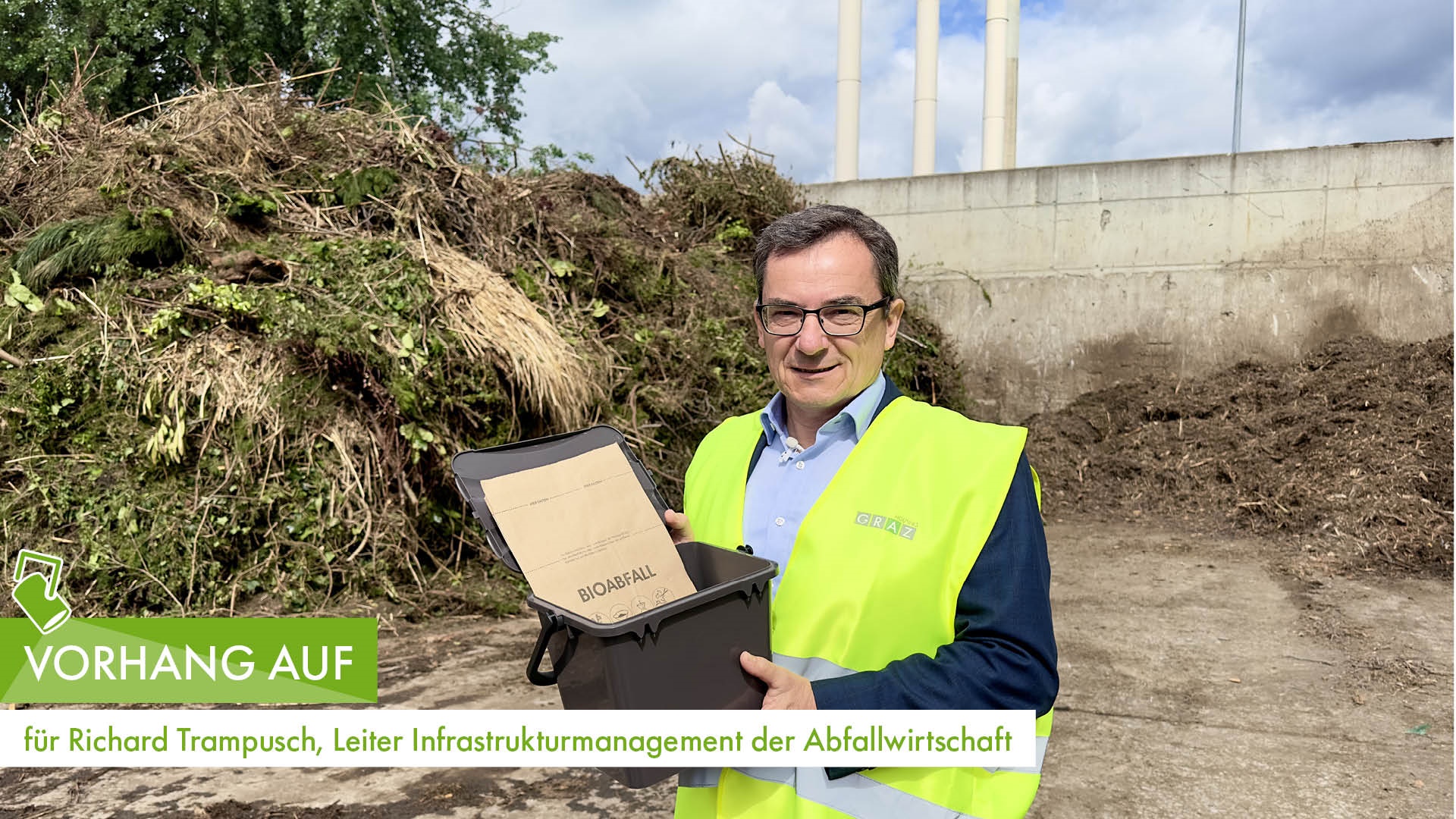In our series “Raise the curtain!”, we introduce the employees of Holding Graz. In keeping with the current organic waste campaign, this time we shine the spotlight on Mag Richard Trambush.
As Chief of Staff for our Waste Management Infrastructure, Operations and Innovation Department, he contributes his expertise.
How can everyone collect organic waste properly?
Biowaste occurring in the kitchen, home and garden should be carefully collected and then placed in the organic waste bin. “Trash” that can be obtained from the Holding Graz Company in the Graz Resource Park, or other pre-collection containers available in the kitchen and in the garden, are suitable for pre-collection. To keep these containers clean, if necessary, you can line them with a biodegradable paper bag that can be thrown into the organic waste bin along with the organic waste. These biodegradable paper bags are also available at the Graz Resource Park in Holding Graz. Please do not use organic plastic bags!
What should you definitely avoid or what should you pay special attention to when it comes to disposing of organic waste?
Only throw appropriate organic waste into the organic waste bin, i.e. fruit and vegetable waste, food scraps from the kitchen (but no liquid food scraps), egg shells, citrus peels, flowers, harvest scraps from the garden, grass cuttings, leaves and shrubs. Cuttings, eggshells, potting soil in small quantities etc. It all belongs in the organic waste bin! But under no circumstances should food be thrown away in its packaging (plastic bags, plastic cups, foil, cans, jars, etc.) in the organic waste bin! What also does not belong to organic waste are liquid food scraps, used cooking oils and fats, large amounts of meat scraps, bones, cat litter, ashes, diapers, hygiene products and the like.
What advantages will the residents of Graz gain if they segregate and collect organic waste?
You are doing something for the environment and nearby natural cycles. High quality compost and compost soil are produced from clean and separately collected organic waste. Compost, garden soil and bark can be purchased at the soil sale at Rumpfgasse 16 or larger quantities can be delivered to you. In this way, these products can be put back into circulation and vegetables, grains, fruits, flowers and ornamental plants can be grown and harvested. The compost makers themselves also use high-quality compost on their fields and lawns.
Can you share a special tip from your waste management experience?
It is important not to put any liquid food scraps in the organic waste bin. You can insert the mentioned paper bags or other biodegradable paper into the pre-assembly aid so that the moisture is absorbed. This keeps the organic waste bin clean and odorless.
More information about our organic waste campaign can be found here!
You can find more staff photos here!

“Total coffee aficionado. Travel buff. Music ninja. Bacon nerd. Beeraholic.”








More Stories
Wealthy families take more risks when it comes to money.
Salesforce and NVIDIA Form Strategic Collaboration to Drive AI Customer Innovation
Changing banks causes problems for customers